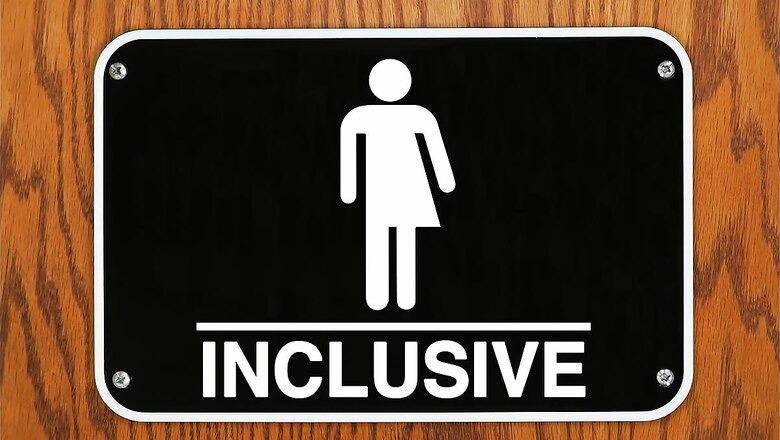The Economic Case for Inclusive Toilets: How Equal Access Drives Social Progress and Economic Growth

views
In India, a nation steeped in rich heritage and diverse cultures, it is crucial to recognize the importance of inclusivity as a cornerstone of societal progress. Gender inclusivity, particularly for the LGBTQ+ community, is an area that warrants our collective attention and action. Just as a chain is only as strong as its weakest link, our societies are only as egalitarian as the rights afforded to the most marginalised amongst us.
Let’s look at the cause of sanitation, for instance. Despite the fact that most of us, especially in cities, had access to toilets before the Swachh Bharat Mission, we still had outbreaks of diseases like cholera, diarrhoea and other water borne diseases. This happened, because our maids, our drivers, our security guards and countless other people who enable our lives of privilege lived in spaces (often slums) where they didn’t have access to clean toilets. When these diseases took hold in the slums, they came into our homes too, and affected our children and our elderly.
After the Swachh Bharat Mission, every Indian has access to toilets. As our sanitation practices improve, so does the health of our communities, even when we define our communities at the city level. Lower disease burden means higher productivity in our offices, factories and homes, and better attendance in our schools. The line from accessible toilets to economic progress is a direct one.
And yet, we have a community in our midst that has not benefited from these improvements. Individuals who identify as transgender, intersex or non-binary can’t squeeze themselves into male or female identities, to be able to use our gendered toilets. Whether they choose to go to the ladies toilet or gents toilets, they are always at risk of being called out, humiliated, shunned, asked to leave the premises, verbally attacked and in some cases, even physically harmed.
While the costs of implementing gender-inclusive public toilets might be a concern for some, it is imperative to look beyond the immediate expenditures and delve into the far-reaching social and economic benefits that such initiatives can usher in, for all of us. Equality that isn’t equally applied to everyone, isn’t equality, after all.
Upholding Dignity and Enhancing Public Health
At the heart of gender inclusivity in public toilets is the respect for human dignity. For members of the LGBTQ+ community, the absence of appropriate facilities can lead to extreme mental stress and anxiety. A study conducted in the United States revealed that 59% of transgender or gender-diverse participants avoided using public toilets due to fear of confrontations. According to another study, among the transgender and/or nonbinary youth who experienced bathroom discrimination, 85% reported depressive mood and 60% seriously considered suicide. These experiences are echoed by transgender and non-binary people everywhere, including India.
Physical repercussions of not going to the toilet can include development of urinary tract infections, kidney problems, and other related health complications. Since they also tend to restrict their intake of food and water, many of these individuals suffer from nutritional deficiencies and gastrointestinal issues. With our hot weather in India, dehydration is also never far behind.
From a public health standpoint, we must think about what happens when such individuals are denied access to public toilets, especially at their places of residence and at work. If they’re relieving themselves elsewhere, if they are unable to practise safe sanitation, we’re right back to where we started – with diseases that come from unsafe sanitation practices.
Fostering Productivity and Workforce Diversity
Poor sanitation, poor toilet habits and low hygiene can have a significant impact on productivity, as workers need to take time off due to illness or when caring for sick family members. According to the World Bank, poor sanitation costs the global economy $260 billion per year in lost productivity.
The same causes also lead to illnesses and absenteeism in schools and colleges, making it harder for students to catch back up. As we also know from Mark Balla’s book, ‘Toilet Warrior’, girls often drop out from school once they begin menstruation when they don’t have access to a clean and safe toilet. The same reasoning extends to transgender and non-binary people who menstruate.
To put this in context for the LGBTQ+ community, according to the 2011 Census, there are 4.88 lakh transgender individuals in India, of which 55,000 are children. Each of these people has much to contribute to our nation, to their families and to themselves. But they can’t do so when we create barriers to them meeting their most basic needs. When the LGBTQ+ community has access to gender-inclusive toilets, it enables them to participate more actively in the workforce.
Moreover, companies that embrace diversity are often more innovative and adaptable. Diversity isn’t about checking a box, it is about making our businesses more resilient. When we have wider ways of thinking, a wider range of backgrounds, different voices and identities, we miss less and see more. We have fewer blindspots. This broader range of perspectives leads to better problem-solving and decision-making, which creates a direct link between diversity and stronger, more resilient businesses. An economy that is made up of strong businesses, is an economy that can grow steadily, weathering the storms of adversity and disruption without going into a tailspin. To quote PM Narendra Modi, our diversity is one of our greatest strengths.
Attracting Global Talent and Investments
With the global spotlight on human rights and inclusivity, India’s commitment to creating gender-inclusive public facilities can have a positive ripple effect in attracting international talent and investments. When international companies see India as a progressive nation that values and supports the diversity of its citizens, they are more likely to set up operations, enter joint ventures, or invest in Indian enterprises.
Our progressiveness has to translate into real world actions. At a policy level, India has already made great strides. The Supreme Court of India officially acknowledged Hijras as a ‘third gender’ in 2014, and repealed Article 377, decriminalising homosexuality in 2018. In terms of creating access to gender neutral toilets, the progress is slow, but promising. Recently, The Supreme Court also set up nine gender neutral toilets within the court premises. In Delhi, the government has taken a significant step towards inclusivity by mandating that all its departments, offices, district authorities, municipal corporations, state-run companies, and the Delhi Police have separate and exclusive washrooms for transgender persons.
The mantle now needs to be taken up by local municipalities, corporate offices, businesses, restaurants, movie theatres, event venues, public transport premises, toll station toilets… everywhere. After all, we all have to go to the toilet.
Boosting Tourism and International Image
Tourism is a vital cog in India’s economic wheel. Gender-inclusive toilets are an indicator to international tourists that India is a country that respects and values diversity. Countries that embrace gender diversity are also perceived as being safer overall. Think about it – if you knew a particular country had a record of violating the rights of a particular community, would you feel safer there, or in a country where you know everyone is accepted and respected?
Clean and safe toilets and sanitation facilities are essential for attracting tourists and promoting economic growth. When cities have poor sanitation infrastructure it can deter tourists and harm local businesses. The same thing happens when we don’t have toilets that cater to the entire gender spectrum.
Conclusion
The economic implications of creating gender-inclusive toilets for the LGBTQ+ community in India are profound. By promoting dignity, public health, workforce diversity, and enhancing the country’s image, gender-inclusive toilets can play a vital role in driving social progress and economic growth.
In being allies to the LGBTQ+ community, we’re also being our own allies. The road to being an ally begins with education. Start with educating yourself. Understand the issues faced by the LGBTQ+ community, particularly with regard to access to public toilets. Learn about the different gender identities and expressions, and the unique challenges faced by each. Harpic and News18’s Mission Swachhta aur Paani initiative has some great content you can dip into.
With unwavering commitment, Harpic and News18, through Mission Swachhta aur Paani, actively engage and champion the cause of the LGBTQ+ community, sending a resounding message that every person deserves access to safe and embracing environments where their dignity is upheld and their presence is unquestioned.
Now is the time to join your voice to the movement. Learn how you can help move the needle towards a more egalitarian, inclusive, Swasth and Swachh Bharat.




















Comments
0 comment